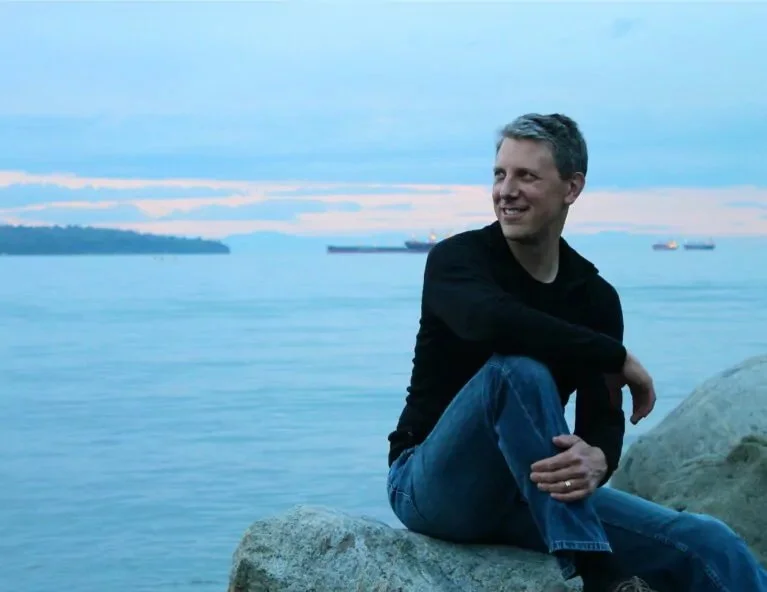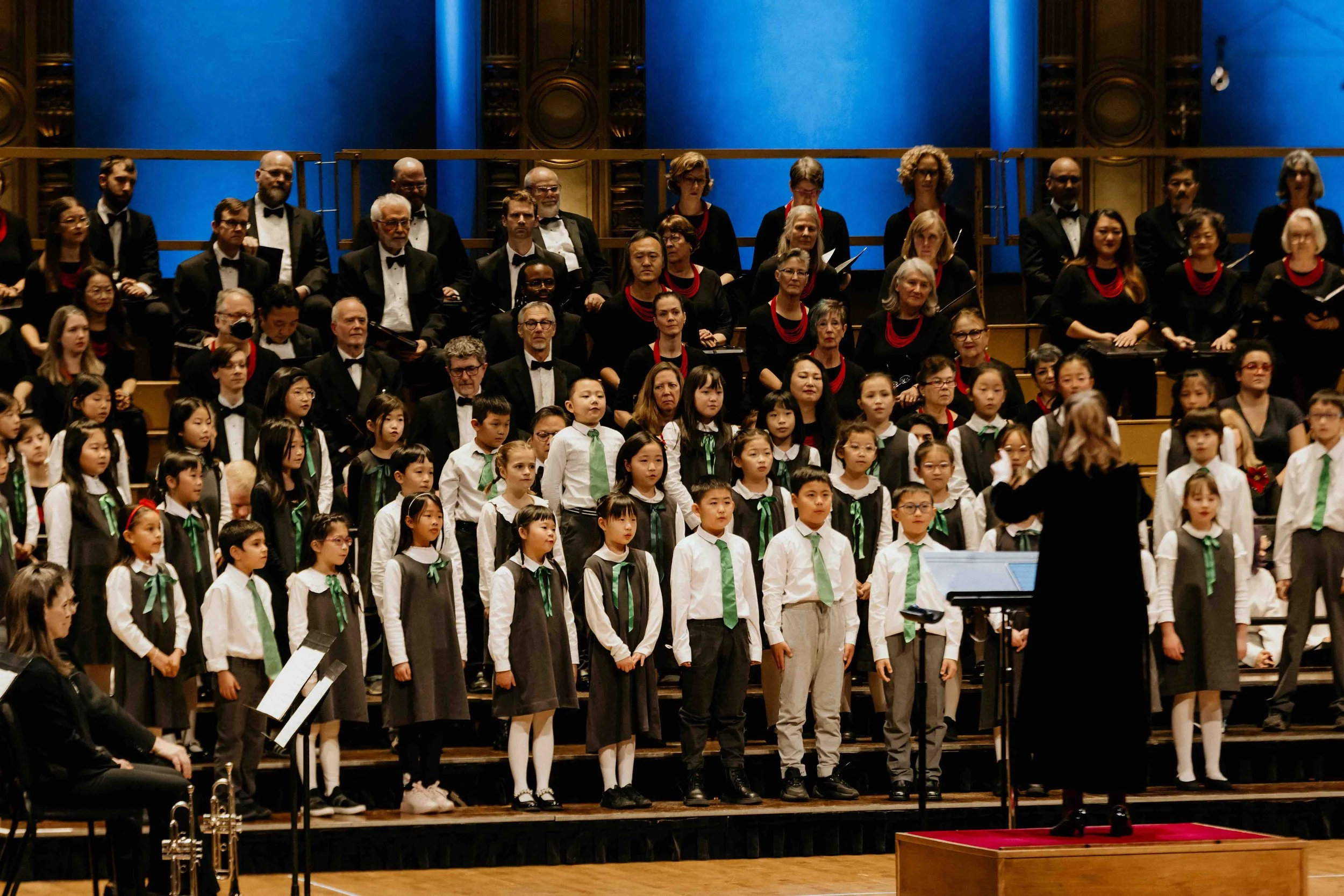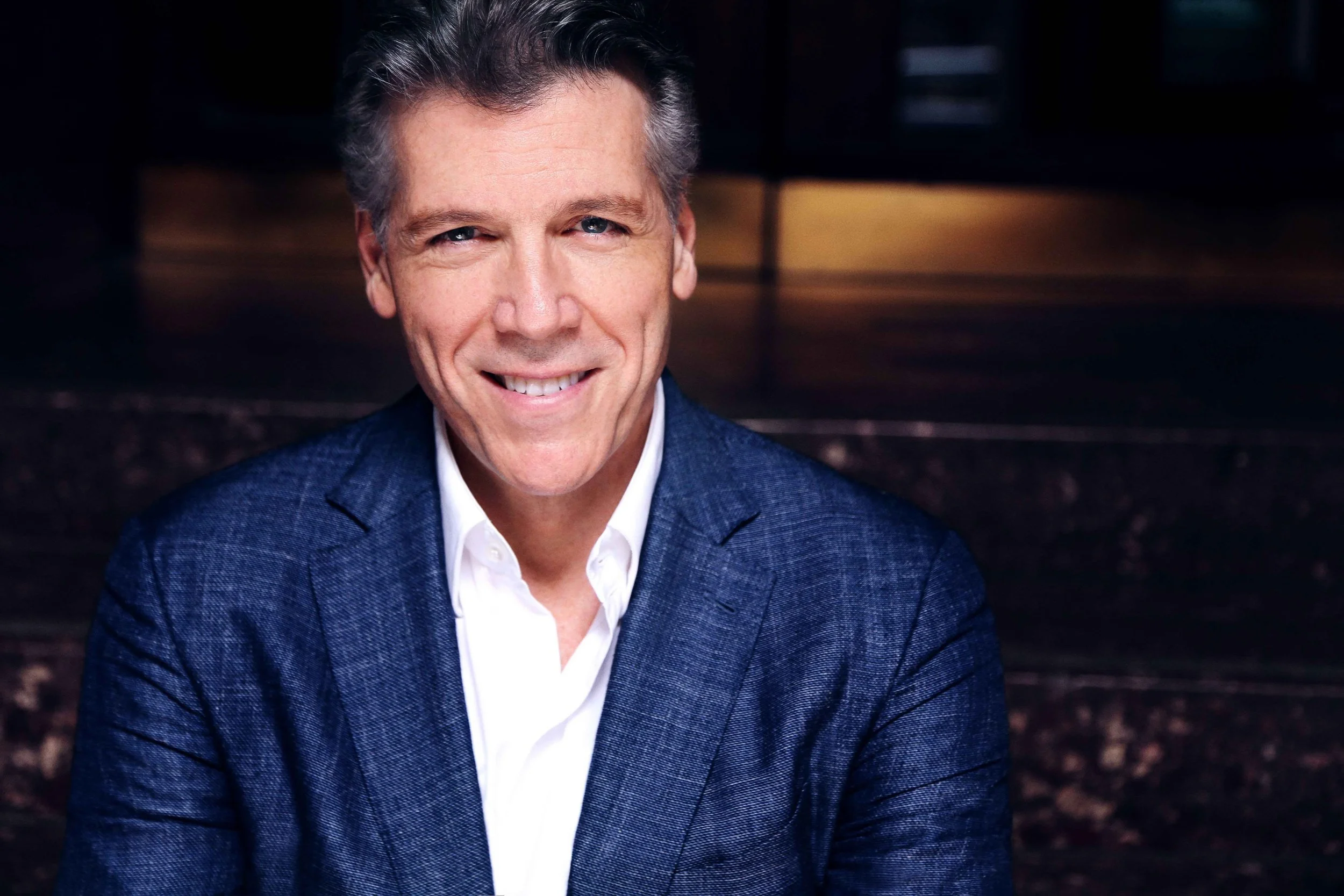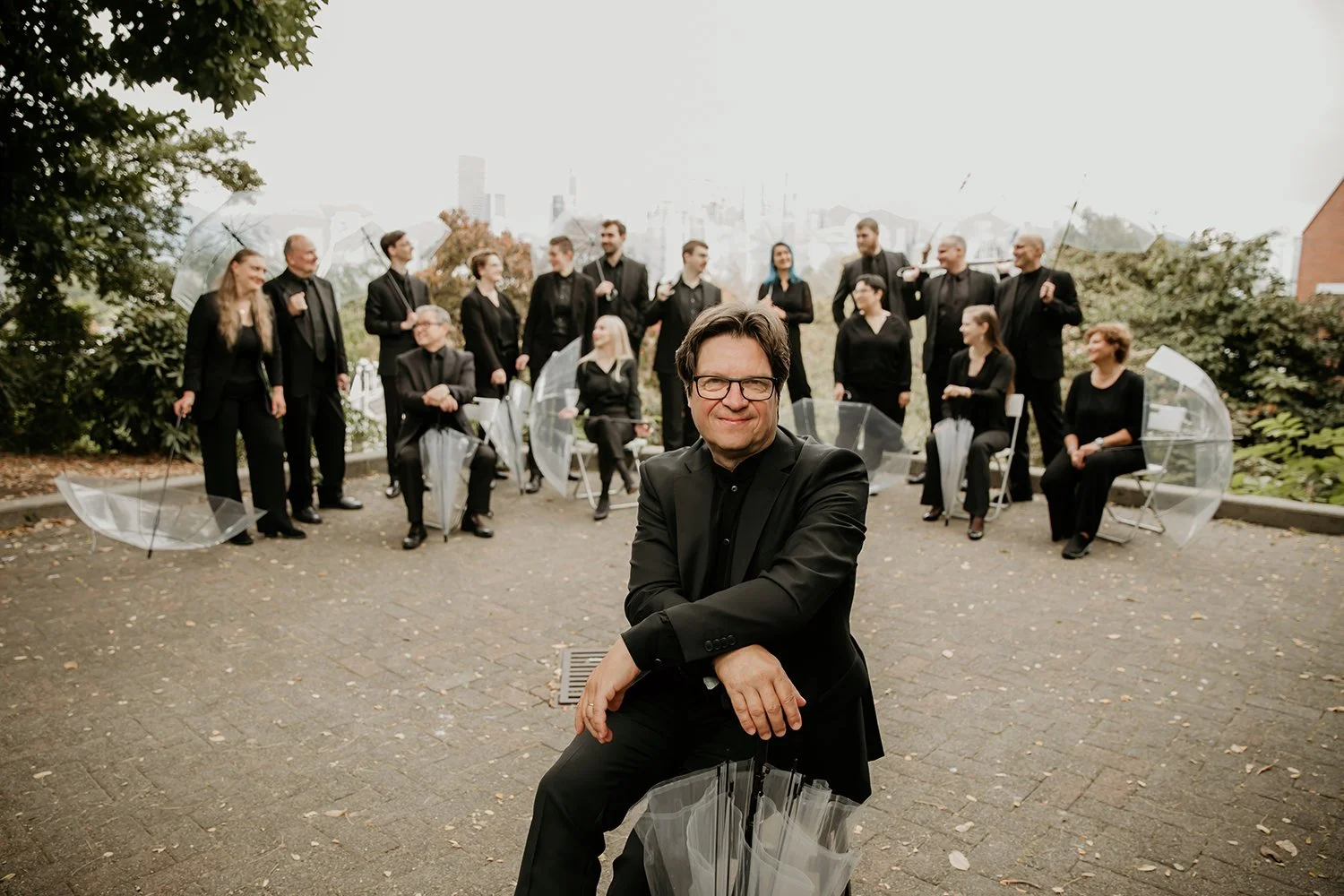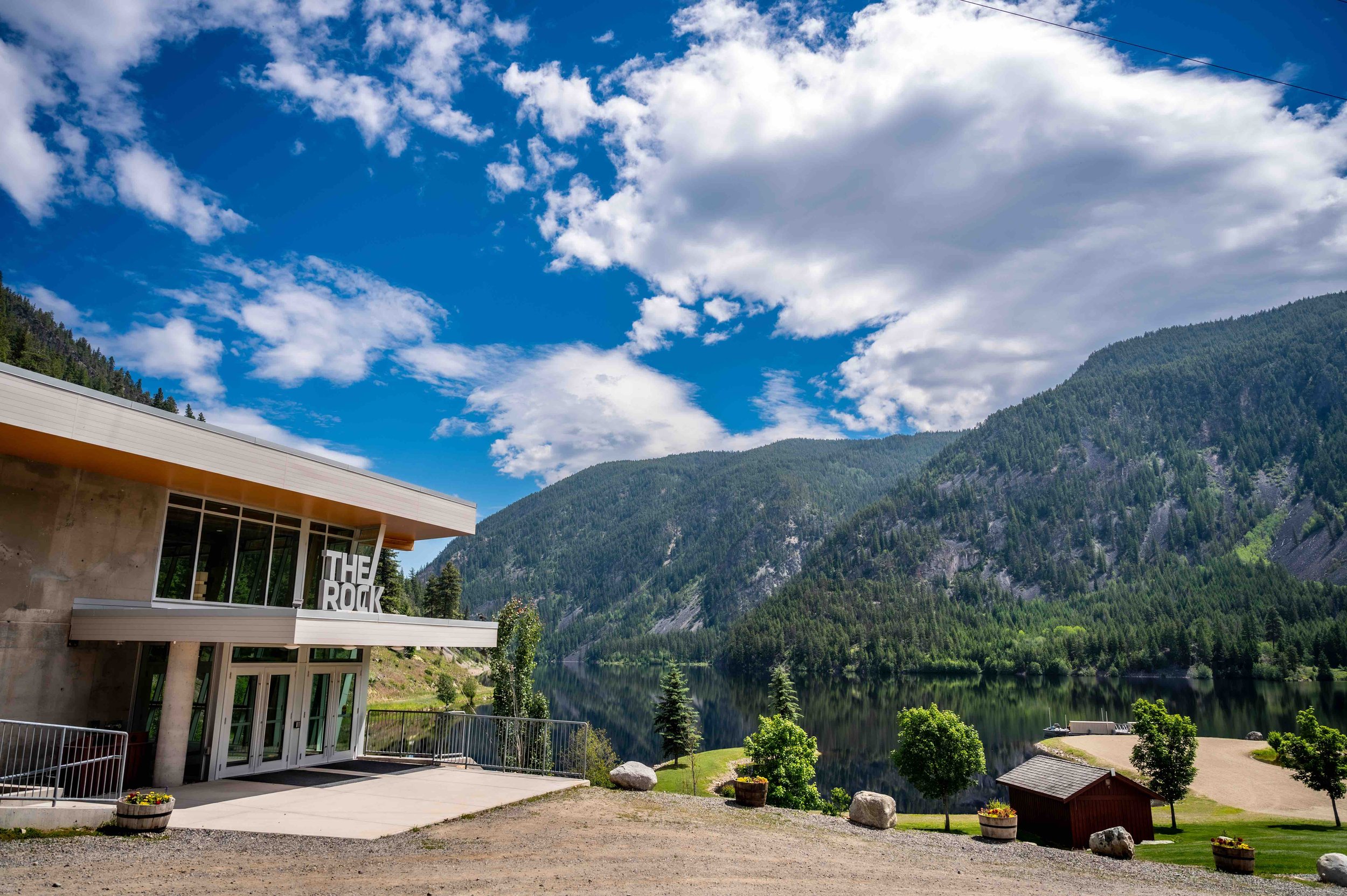VSO's Marcus Goddard scales peaks of memory and connection in Mountain Visions, March 21 to 23
In his latest work, the orchestra’s in-house composer plays on the lofty landscapes of his childhood and his adopted West Coast hometown
Marcus Goddard.
The Vancouver Symphony Orchestra presents Marcus Goddard’s Mountain Visions at the Orpheum from March 21 to 23 as part of its Masterworks Gold series
MOUNT MANSFIELD, the highest point in the state of Vermont, tops out at an impressive 4,393 feet, a lot for the Eastern Seaboard but still far less than Brunswick Mountain, which rules the North Shore skyline at a lofty 5,866 (1,339 versus 1,788 metres, respectively, for the metrically inclined). Still, Mount Mansfield’s slopes were enough to give composer and Vancouver Symphony Orchestra associate principal trumpet Marcus Goddard a good head for heights—and a life-long fondness for outdoor adventure.
Growing up in the lakeside city of Burlington, Goddard was introduced to skiing, hiking, and fishing early on, and even today he regularly leaves his practice room to seek beauty on mountain trails.
“My grandfather had a fishing camp in the mountains—the small mountains—of Vermont, and so we used to go there a lot,” the trumpeter recalls. “It was like a three-mile hike in, and this was from when I was five or six years old. So some of my best memories are of chasing after my grandfather on a hiking trail, trying to keep up. But I just fell in love with the place too, and somehow my relationship with my father and grandfather and just being in nature were tied in together, I think.
“That was probably the biggest influence on me,” he adds thoughtfully. “Our family wasn’t religious, really, but somehow that was almost like a spiritual connection that I felt. It wasn’t stated, but I felt that way.”
Mountains, in particular, continued to exert a pull, through student days at summer music camps in Colorado and on to Goddard’s current position with the VSO, although he admits that he wasn’t thinking of the Whistler peaks when he applied to our resident orchestra. “I was auditioning everywhere that had trumpet jobs,” he notes. “But I was just incredibly lucky to land in Vancouver when I did.”
Vancouver was lucky too. Goddard does double duty with the VSO; in addition to being one of its foremost trumpet virtuosos, he’s been its in-house composer for several years. In that capacity, he’s contributed a number of monumentally impressive scores to the orchestra’s repertoire, most notably 2023’s multimedia spectacular Life Emerging, which blended high-resolution imagery of the Antarctic wilderness with expansive, innovative, and occasionally alarming sonorities. Fittingly so, as Goddard describes.
“In the Antarctica piece, I guess I kind of placed my human experience in that place,” he says. “Even though I haven’t been there, I can imagine the foreboding sense of that desolate, dry cold. And for many of my pieces I’m kind of thinking about that kind of interaction with a landscape.”
Goddard was certainly successful with Life Emerging, which benefited from its audio-visual component but didn’t really need it to conjure up a sense of immense space, shifting floes of ice, and the underlying fragility of the natural world. With Mountain Visions, which mezzo-soprano Marion Newman and the VSO will premiere at the Orpheum from March 21 to 23, we’ll get a more purely musical experience, but one that’s illuminated by the composer’s own wanderings, on foot and by bicycle, through our local snow-capped peaks.
“My first conception of the piece was another work in the same direction as Life Emerging, with a film component,” Goddard says. “And I had approached the filmmaker and climber Renan Ozturk about doing a piece together. We met many times about the piece, but ultimately funding just didn’t come through for the film aspect, so I pivoted a bit. I had always planned to feature Marion Newman, but at first I thought, ‘Well, maybe the voice will almost be like an instrumental colour.’ Having the film and the music and the voice, to somehow add a text that stands on its own felt like too many things at once. But when the film didn’t happen, at least for this version of the piece, my daughter Jordana introduced me to this text by Pierre de Ronsard [“Ciel, air et vents”], which I thought was incredible, and really fit with the idea of what I wanted.
“In a way, the text—more than my visual concept for the piece—steered the music a lot more on this one,” he adds.
Although Newman will sing Ronsard’s words in their original and somewhat eccentric French, Goddard’s bilingual child—an accomplished soprano in her own right—has provided an updated English translation.
Heaven, air and winds, plains and wild mountains
Vine-covered hills and vibrant forests,
Winding rivers and flowing springs,
Sculpted groves, and you, green prairies,
Mossy caves with gaping mouths,
Meadows, buds, flowers and dewy grasses,
Undulating valleys, white-sanded beaches,
And you rocks, bearers of my verses:
Since on parting, plagued by care and regret,
To that beautiful eye I could not say farewell,
Whether near or far, holds me in turmoil,
I beg you, heaven, air, winds, mountains and plains,
Hills, forests, rivers and fountains,
Caves, meadows, flowers, tell her for me
Yes, the 16th-century poet’s musings could be interpreted as a song of yearning for a lover. But in our contemporary context—and given Goddard’s evident environmentalism—it could also be an elegy for aspects of the natural world that are slowly slipping away. After all, concern for the environment is not only a 20th- or 21st-century conceit.
“There’s that connection,” says Goddard. “And the connection goes back for as long as we’ve existed.” ![]()


